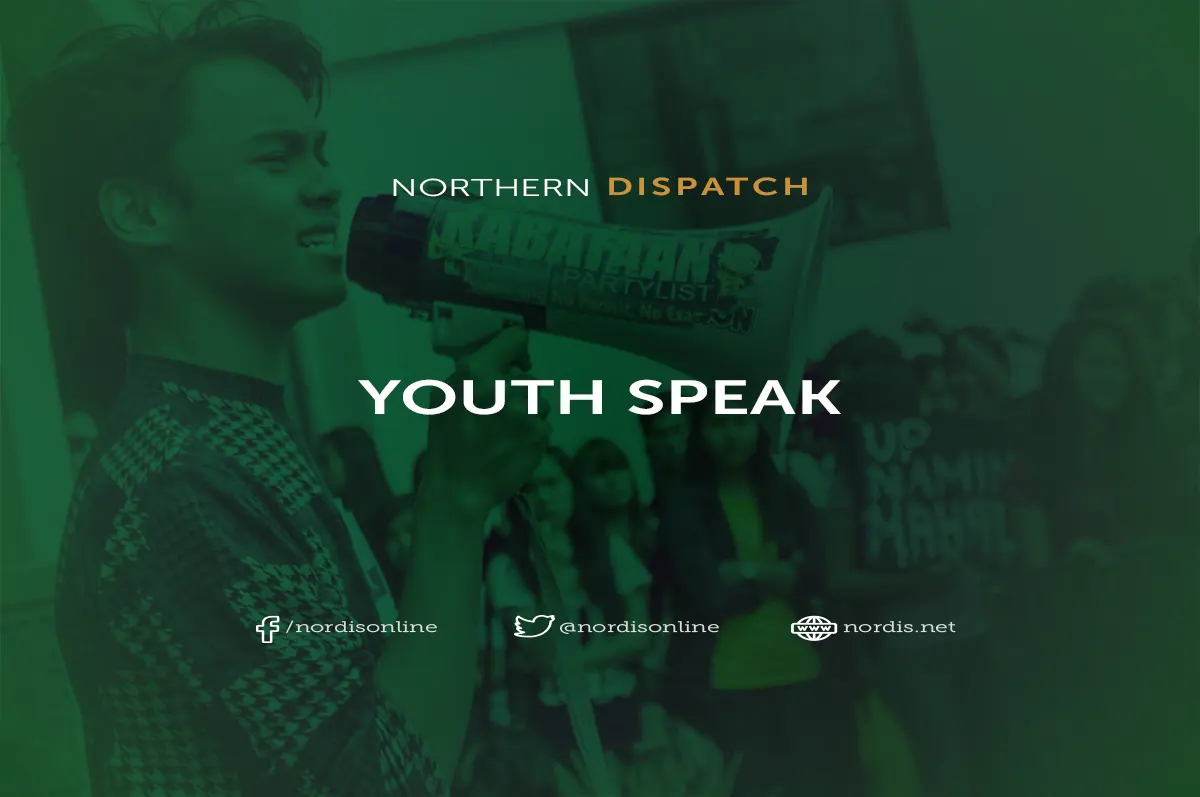4 MIN READ
By KURT ALEXANDER NOLASCO
www.nordis.net
Consent forms, solicitation letters, and non-stop training–sights all too familiar to me–the same signs herald the imminence of the annual National Schools Press Conference (NSPC). As a batang journo myself, I find it too hard to resist the temptation to take a trip down memory lane.
Every campus journalist feels an overwhelming sensation every time they enter the venue of the competition proper at an Inter-Schools Press Conference: a deep hunger for commendation built up by a year’s worth of relentless hard work. All the months of rigorous training and fierce competition led to this: the ultimate quest to earn that coveted gold medal.
After the accolades and citations for a job well done, what then? Apparently, besides beefing up one’s resume in applying for admission to colleges, organizations, or companies, not so much.
I am a product of the campus journalism scene. I have joined and trained for press conferences on various levels since the ripe age of 10. From a firsthand account, I can definitively say that we were not really taught to be journalists in the most real sense of the word; rather, we were taught how to follow a hollow, mechanical template of narrating facts from a fact sheet, uncritical of what was true or not. We were trained in how to best package the facts presented to us to please the judges. This has unfortunately resulted in Campus Journalists (CJs) not being advocates of truth and press freedom but instead prize horses for winning competitions. We seem to lack integrity and fearlessness in reportage, which many campus journalists take pride in.
Despite the Philippines supposedly fostering a thriving campus journalism scene with the advent of the Campus Journalism Act of 1991 (R.A. 7079) and avenues for growth with competitions such as the NSPC, this could not be any further from reality. Campus journalists are often subject to severe repression from their respective institutions’ administrators, even with the supposed protection afforded by the law.
How can campus journalists uphold truth and press freedom when administrators themselves, under the guise of institutional regulation, violate our constitutional right to freedom of expression?
Being a product of the Pontifical and Royal University of Santo Tomas (UST), a case close to my heart is that of TomasinoWeb, the premier digital media organization in UST, wherein they were asked by the University of Santo Tomas Office of Student Affairs (UST-OSA) to take down a harmless and innocuous post, and were threatened with administrative sanctions and removal of accreditation if they did not comply with the UST-OSA’s directive. Drastic as it may seem, the case of TomasinoWeb is just one example of the many cases of school administrations violating press freedom inside their respective campuses, not only in UST but all over the country.
Just last school year, the organization I was a part of was asked to take down several publication materials, supposedly to ensure that university organizations were politically neutral. We had to resort to internally publishing these calls for action on our personal Facebook profiles to avoid sanctions from the administration. However, despite our efforts to work around draconian policies from a repressive institution, we still faced red-tagging, which in turn forced us to hide our posts and effectively defeated the purpose of materials made for publication.
Antonio Tagamolila, one of the stalwarts of press freedom, lived by the quote, “To write is to choose.” The journalist’s task is to report facts as accurately as possible–and in this age of post-truth, wherein some actors act in bad faith in maliciously distorting facts, it is inevitable that to write necessarily means taking a side. But how can we learn to be critical and tell the truth from lies if, during our formative years, we are not equipped with the tools necessary for critical analysis of any given situation?
Worse, any attempt to holistically report any newsworthy event is censored, especially if it does not curry the favor of the authorities. We are told to stray from chronicling certain issues, keep it “neutral,” and instill fearfulness in reportage instead of courage and bravery, which undoubtedly will even provide more room for bias–the mortal sin of any journalist. We are drowned in images of campus journalists as supposed poster children for “neutrality” and even censorship. We can only be deemed as good campus journalists if and only if we win press conferences and work closely with the administration’s narrative, only serving our purpose of bagging prizes for the glory of our respective schools.
The only feasible course of action for us campus journalists thus remains clear: to call for less regulation and censorship and allow more room for press freedom to foster a healthier, more liberal take on campus journalism and help develop critical and fearless reportage. These liberalities are necessary for school media outfits to fulfill its mandate as the Fourth Estate. Statutory amendments to R.A. 7079 are needed to protect campus journalists from red-tagging and repression; there is also an urgency to repeal certain provisions to lessen leeway for school administrations to impose repressive policies in the guise of regulation. We also need to eliminate the prevailing culture of producing “contest journalists” and instead be trained to be actual journalists, in the spirit of the profession empowered to advocate and frame pressing issues of our nation and our respective communities.
At the end of the day, we should not attend school press conferences for the glitz and glamor, the medals, the certificates, and the potential for recognition but rather to enrich the already rich landscape of Filipino journalism. # nordis.net
Kurt Alexander Nolasco, 19, is a BA Communication student at the University of the Philippines Baguio interested in investigative journalism, communication, and student life.



